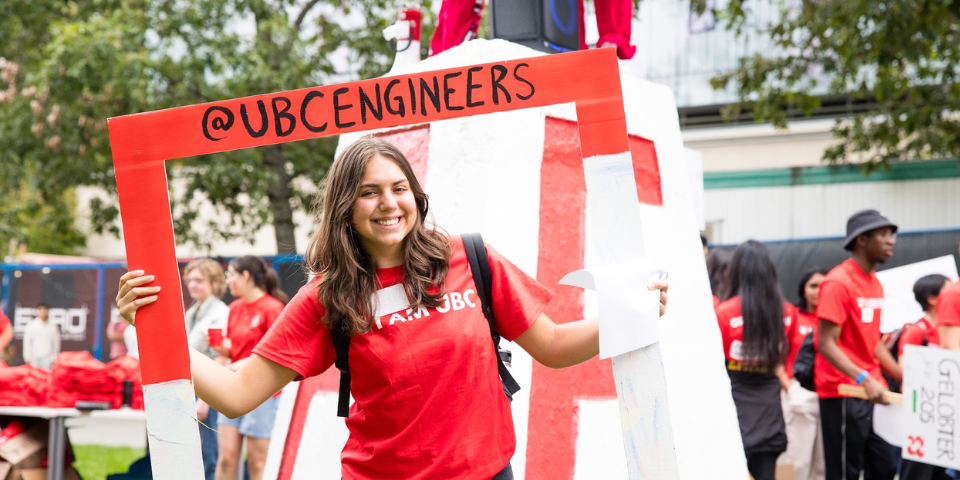“I honestly believe I can attribute some of my career successes, even seven years after graduating, to experiences I had in co-op.”

There’s a reason Mariah Newman, a UBC Mechanical Engineering grad who has worked at Intel since graduating in 2016, sees a direct connection between her co-op experiences (including a four-month stint at Intel) and her career success. And she’s not alone.
Students who participate in co-op finish their degrees with impressive resumes with the real-world experience employers are looking for – making them top-of-the-list candidates for job openings. They also earn higher starting salaries than non-co-op grads. If you’re considering studying engineering and the idea of co-op intrigues you, UBC Engineering is a great choice.
About 50 per cent of UBC Engineering students participate in co-op, working for big-name companies like Tesla, Intel, SAP and Kiewit, as well as for innovative startups, utilities, all levels of government and UBC itself. And as a co-op student, you’ll receive support and guidance from a dedicated team who can help you with everything from interview strategies to navigating the world of employment like a pro.
Here are four ways UBC Engineering students benefit from co-op:
2. Testing out your options
“One thing I love about co-op is that it allows students to test our different kinds of work at different kinds of organizations.”
As a co-op student, you must complete at least four co-op work terms, giving you the opportunity to work for multiple organizations across different industries. For some students, a co-op placement ignites a passion for a specific area of work. Other work-term experiences might not be as satisfying – but that’s also useful because it enables you to learn firsthand what workplace environments or positions are most appealing to you.
“You might discover that although you thought you wanted to work at a big company, you love the ‘all hands on deck’ culture of a smaller startup. Or you might do four months of work in a field you thought you’d love and realize it’s not for you. It’s far better to have a broad range of work experiences before you graduate so you are better positioned to narrow your job search to the kinds of work aligned with your interests,” says Jennifer Syrnyk, Senior Manager of Business Development and Employer Engagement at the Faculty of Applied Science.
Manufacturing Engineering student Tanya Raja worked in Vancouver, Singapore and Toronto. “My co-op terms have enabled me to try out different companies, industries and roles. These have all been fantastic experiences. I would not have had the opportunity to try out working with different kinds of companies without co-op.”
Co-op also enables you to learn about different aspects of an industry.
“Say you’re interested in climate change,” says Jennifer. “Over the course of your degree, you might be able to work in a startup, a non-profit and a government department that are all involved in some way in climate change. You can develop quite a breadth of experience.”
4. Building a network
Co-op work terms are fantastic opportunities to grow your professional network. You’ll be working with and meeting a wide range of people, with each representing an opportunity to build professional relationships.
“Our Co-op Career Advisors will work with you on how best grow your professional network while within the program,” says Jennifer. “It means that when you graduate, you’ve already got strong industry connections and experience, making it much easier to land your dream job when you graduate.”
Arya Subramanyam is a 2023 Computer Engineering grad who held three very different roles for her co-op work terms in addition to working as a co-op peer advisor, which has given her a broad perspective on the advantages of co-op and all it offers.
“In most cases, employers or recruiters value technical work experience more than other projects or extracurriculars on your resume,” she says.
“Through the co-op program, you receive a structured approach to gaining 16 months of work experience before you graduate, with companies supporting you as they acknowledge that you are still a student. This experience is invaluable, especially with the cut-throat competition today!”
Interested? Start your future at UBC Engineering and start building the foundation for a rewarding career.










